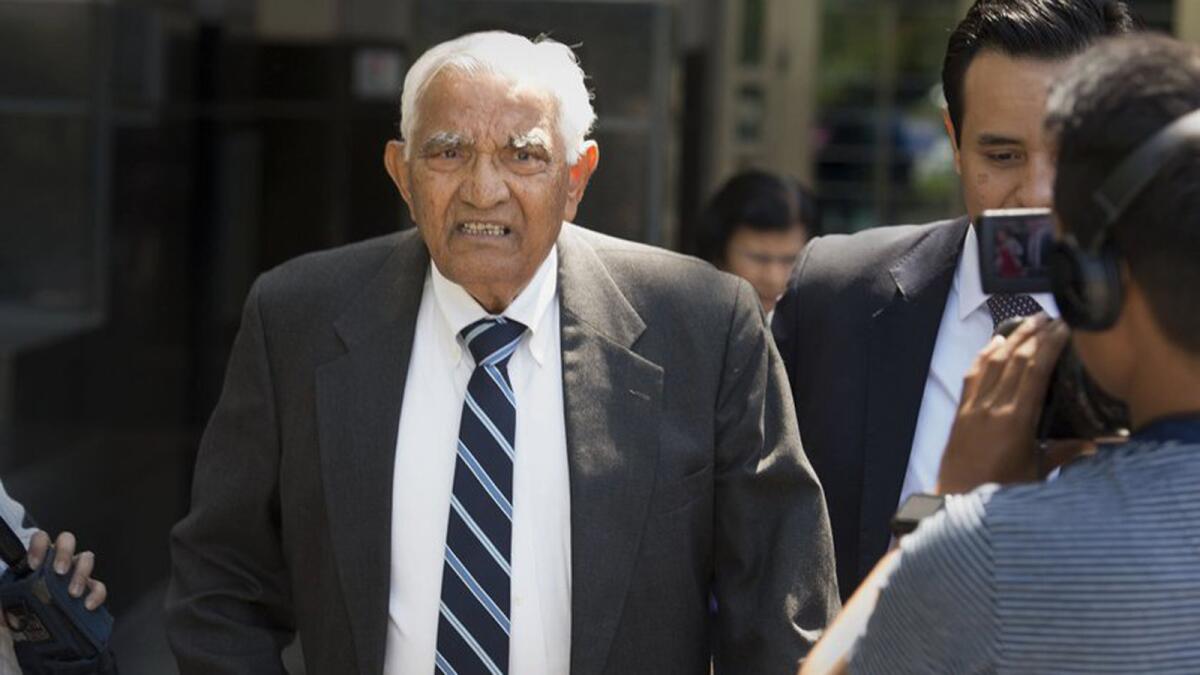San Diego Rep. Scott Peters and the families of his congressional pals swap donations

San Diego Rep. Scott Peters and his family have been involved in a series of donation exchanges with the families of other congressional candidates, apparently legal trade-offs that allowed more money to flow to each campaign than might be allowed under contribution limits.
Federal Election Commission reports show Peters and his family have written checks for years to other Democrats, almost always for the maximum amount.
These candidates and their families donated the same amount to Peters around the same time, often on the same day.
U-T Watchdog was able to identify 21 such dollar-for-dollar swaps:
- Peters’ campaign received $41,600 from Rep. Ami Bera or members of his family from 2012 to 2015. Each of the 16 contributions was matched with one for the same amount from Peters or his family to the campaign of Bera (D-Elk Grove).
- The parents of Pennsylvania Democrat Kevin Strouse gave four donations totaling $10,400 to Peters’ campaign in March 2014. On the same day, Peters and his wife, Lynn Gorguze, gave back the same amount to Strouse’s campaign.
- The campaign of Mark Takano (D-Riverside) gave $2,000 to Peters’ campaign in 2013. Peters’ father-in-law gave the same amount to Takano’s campaign on the same day.
The Watchdog asked Peters’ spokeswoman MaryAnne Pintar whether the funds were given with the understanding that they would come back to the campaign, and she did not answer directly.
“It’s common for members of Congress to support and help elect candidates and other members who share their values in order to pursue their agendas,” Pintar said. “It’s also common for the money to come in roughly at the same time, at the end of the quarter, when candidates and causes are focused on end-of-quarter fundraising pushes.”
Bera’s office also did not answer questions about whether the contributions were coordinated.
“When help is needed, Rep. Bera has always been willing to encourage his own supporters to assist other candidates in competitive or challenging races,” said campaign manager Jerid Kurtz. “It’s absolutely ridiculous to suggest that there is anything improper about candidates helping one another.”
Jordan Libowitz, communications director for Citizens for Responsibility and Ethics in Washington, said donation swapping doesn’t run afoul of FEC regulations.
“There’s nothing inherently wrong with saying I’ll give to you if you give to me,” said Libowitz, whose group is nonpartisan but has been accused recently of becoming left-leaning. “But most of the time, when you hear about accusations of donor swapping, it’s with mega donors trying to get around donor limits.”
In 2012, Lynn Gorguze had reached the $5,000 donation limit for giving to her husband’s campaign. Then on June 20, she gave $2,500 to Bera’s campaign — five days after Bera gave to Peters’ campaign in the same amount.
Under federal law, Gorguze was not able to give more money directly to Peters’ campaign, but the criss-crossing contributions were allowed.
In February 2013 Peters’ in-laws — Vincent and Gloria Gorguze — each had given $5,000 to the La Jolla Democrat, $200 shy of the maximum for that election cycle. Then on June 30, they gave $5,200 to Bera’s campaign. Bera’s parents gave the same amount to Peters’ campaign on the same day.
Vincent Gorguze made a similar same-day exchange with Rep. Takano’s campaign committee that September, a swap that gave another $2,000 to Peters.
By 2015, Peters’ father-in-law had passed away. His mother-in-law and wife continued to donate the maximum amount to his campaign, two $5,400 contributions in March. They also gave a like amount to Bera, whose parents had already given the same amount to Peters — indirectly placing an additional $5,400 in Peters’ treasury.
Peters has frequently been identified as one of the wealthiest members of Congress, mostly due to assets from his wife and her family.
According to the Center for Responsive Politics, which compiles lists of the richest politicians in office, Peters had an estimated net worth of $72.9 million in 2014, the most recent data available, making him the 10th wealthiest member of the House that year.
Bera, a physician in Elk Grove, ranks 70th with a net worth of about $5.7 million.
Paul Ryan, executive director of the nonpartisan Campaign Legal Center, said donor swapping is common among wealthy families, since it allows someone to indirectly give more money once they’ve reached the donation limit.
“If the parents have maxed out to their own kid, they can give another max donation to someone else who promises to donate back to their kid,” Ryan said. “It’s a fundraising strategy, and it’s perfectly legal.”
In April 2014, the parents of former Pennsylvania congressional candidate Kevin Strouse donated the maximum amount to their son’s campaign. That same week, they swapped donations with Peters and his wife, indirectly adding an additional $10,400 into their son’s campaign fund.
Donor-swapping helps boost appearances as well, Ryan said. On paper, a candidate has raised more money, from a longer list of supporters, and the reports appear less reliant on their own family wealth for campaign support.
Identifying swaps in contribution data can be difficult, since exchanges usually go through family members, who may have different last names. Donors aren’t always listed with the same information. Bera’s father, for example, is listed variously as Babulal Bera, Bob Bera and B.R. Bera on a series of donations over the last four years.
In May, the Foundation for Accountability and Civic Trust, or FACT, filed a complaint with the FEC, naming more than a dozen politicians as participants in a “complex family shell game” that allowed Democrats and their families to “contribute as much as five times the lawful limit.”
The letter said the swaps effectively allowed the Bera family to make contributions in the names of Peters and his family, among others. Federal law does not allow someone to give a campaign contribution in someone else’s name, and the complaint is pending.
“It smells really bad,” said Matt Whitaker, former U.S. attorney and executive director of FACT, which is nonpartisan but has been described by some as right-leaning. “Clearly there was an organized and very specific agreement to do this, these transactions. But it’s difficult to prove: Really only the people involved know what the agreement was.”
Bera’s office said there was nothing untoward about his contributions to Peters.
“Scott is one of my closest friends in Congress and he regularly faces challenging races, so I’ve always been proud to do everything I can to support him,” Bera said, according to a statement released by his campaign in response to the U-T’s questions.

The congressman’s father, Babulal Bera, 83, recently admitted in federal court to illegally funneling nearly a quarter of a million dollars to his son’s 2010 and 2012 election campaigns, exceeding campaign contribution limits by reimbursing people who agreed to donate. Prosecutors said the scheme involved more than 130 instances of improper campaign contributions from about 90 people.
The Bera case is similar to a long line of “straw man” election law cases, in which bogus donors write a check and then are reimbursed by the real contributor — an illegal act.
The donor swapping is different, not only because it’s legal, but also because no one is reimbursed for making a donation. The contributions are in like amounts, and in mutual interest, but the parties to the transactions are separate.
The elder Bera is to be sentenced in August. Prosecutors have maintained that there’s no evidence Rep. Bera or his staff were aware of the illegal activity.
Peters’ campaign mailed a refund check to Bob Bera for $5,400, two days after he pleaded guilty to two counts of felony election fraud. The campaign did not return other funds from Bera or his family.
Peters and Bera were both elected in 2012, defeating incumbents in both seats.
Bera is running against Republican Sacramento County Sheriff Scott Jones in November’s election. Peters faces Republican challenger Denise Gitsham in November.
ALSO
‘Confusing’ California primary ends on sour note
All of California’s Democrats in Congress now back Hillary Clinton for president
It only took a month to count California’s votes. Here’s why, and why it may get better
More to Read
Get the L.A. Times Politics newsletter
Deeply reported insights into legislation, politics and policy from Sacramento, Washington and beyond. In your inbox three times per week.
You may occasionally receive promotional content from the Los Angeles Times.










